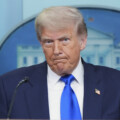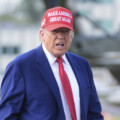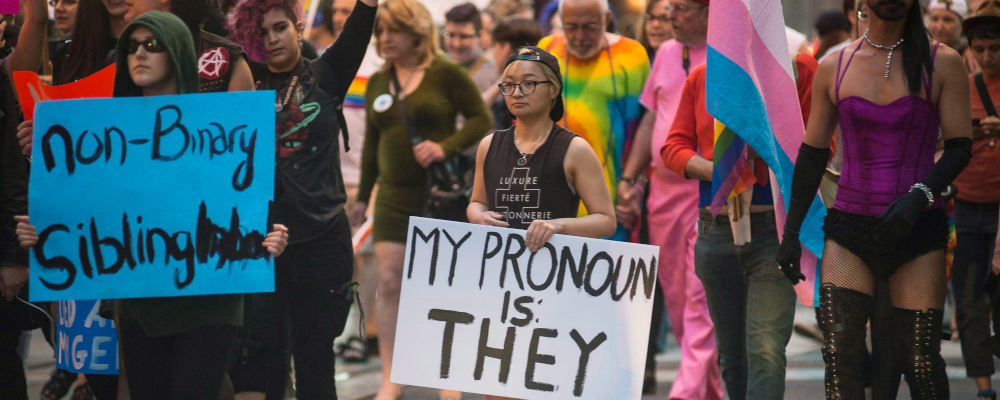When Francis Fukuyama wrote The End of History and the Last ManThe End of History and the Last Man in1992—a book more maligned than read—he asked whether humanity had hit upon some final form of human government, which provided a decent level of freedom and economic prosperity. According to Freedom House, since 1945, more countries have adopted some form of liberal democracy, though that number has slowed over the past decade.“The present threat to democracy is the product of 16 consecutive years of decline in global freedom. A total of 60 countries suffered declines over the past year, while only 25 improved. As of today, some 38 percent of the global population live in Not Free countries, the highest proportion since 1997. Only about 20 percent now live in Free countries.” https://freedomhouse.org/report/freedom-world/2022/global-expansion-authoritarian-rule Fukuyama didn’t say history would end, but the struggle over ideology would be a thing of the past. The end of history didn’t mean the end of the conflict; there would still be enough news to fill the pages of Foreign Affairs.
What worried Fukuyama was a nostalgia for an ideology worth dying for. Without it, humans would tire of a political system that drains the excitement of fighting for a cause where post-history would become “the perpetual caretaking of the museum of human history.” No need to worry since we’re not there yet.
Fukuyama was correct that the West’s form of liberal democracy—a combination of respect for the individual, the rule of law, private property, free markets, and democracy—would eventually defeat Fukuyama was correct that the West’s form of liberal democracy – a combination of respect for the individual, the rule of law, private property, free markets, and, if lucky, some form of democracy – would eventually defeat authoritarianism and communism. No one saw China’s extraordinary economic growth without freedom mainly because no one predicted that free markets without liberty were compatible. That may soon change. China’s growth is slowing as President Xi Jinping brings China’s economy under greater state control and jettisons the one feature of liberalism that has lifted hundreds of millions out of poverty.
In Russia, Putin’s form of dictatorship has denied his people the benefits of free and fair elections while putting the country’s resources in the hands of a few select oligarchs, further immiserating his country. By waging war, Putin has exposed an enormous level of corruption in Russia that has filtered throughout the entire economy extending to the military, revealing its incompetence and shameful performance in Ukraine. As threats to modern liberalism, Russia’s and China’s government systems have little appeal outside North Korea, Venezuela, Cuba, Syria and Iran; and little to recommend themselves to the rest of the world.
Fukuyama’s new book Liberalism and its DiscontentsLiberalism and its Discontents turns away from external threats to classical liberalism and argues that the dangers to liberalism now lie within liberal democratic countries. Under the universal principles of respect for the autonomy of the individual, egalitarianism, the sanctity of private property and exchange, along with laws that restrict the powers of the state, is now open season on the extreme right and left.
Fukuyama first argues that the anti-statist pro-market economists including Milton Friedman, Gary Becker, George Stigler, and Friedrich Hayek, all Nobel Prize winners – known as the Chicago School – had gone too far in encouraging the deregulation and globalization, destroying jobs, widening income disparities and over-leveraged banks and financial institutions. Neoliberal policies made business cycles more unstable and weakened social programs. Fukuyama admits that governments like the U.K. had no business owning coal mines or telecom companies. Still, deregulation went too far under the governments of Margaret Thatcher and Ronald Reagan.
A decisive turn to libertarianism put the brakes on the welfare state, leaving many to believe governments should have almost no role in a free society. The Chicago School overemphasized the “consuming animal” role and forgot that our happiness goes beyond our capacity to buy and sell. One can almost draw a direct line from the financial crisis of 2008 to the election of Donald Trump in 2016, ending with his illiberal assault on American judicial and electoral institutions.
While the Right pushed too hard on liberalism’s concept of free markets and the capacity of the individual to adapt to a shifting economy, the progressive left struck at the very heart of liberalism by abandoning the principle of respect for the individual and replacing it with the care and rights of the group. Identity politics moves away from individual rights to race, ethnicity and gender. What started as “an effort to fulfill the promise of liberalism,” defined as universal equality and equal protection under the law, is now viewed as the cause of society’s problems.
According to the Left, liberalism is now a fraud that doesn’t protect equality or autonomy but is just a way to dominate through capitalism. Even freedom of speech isn’t sacrosanct, in that the wrong kind of speech must be suppressed, leading to the madness of cancel culture.
Critical theory, which is widely taught at universities, is a way to expose the underlying power structure in society. Within this structure, liberalism emphasizes individualism and property rights, but to critical theory advocates, they are simply means to maintain power in the hands of a dominant group such as straight white men. We now live in a postmodern world where all our beliefs and observations, sciences included, are socially constructed by forces beyond our control. We think science is based on objective evidence and reality, but it’s just one way of looking at the world.
What started as a reigning philosophy of the Left has now moved to the Right. The COVID-19 pandemic is a perfect example of how many extreme conservatives use the same conspiratorial methods to attack “objective” medical science and the hidden agenda of big pharma. Fukuyama reminds us that we’ve reverted to German Romanticism, insisting that truth should succumb to feelings and intuition. The Right and Left have abandoned the liberal attribute of tolerance and respect and dismissed governments as corrupt and illegitimate.
Fukuyama ends with a plea that progressives must realize that half of the U.S. doesn’t agree with their methods or goals, while conservatives have to accept a changing cultural and racial world.
Fukuyama has written a succinct analysis of liberalism’s enemies and gives a fair hearing to its opponents. He sides with a system that has outlasted alternative political ideologies and adapted to the needs of a changing society. But the battle for liberalism won’t be won or lost in academic journals and op-ed pages in the elite media. Whether liberalism wins or loses will be determined in the real world.
That fight started on Feb. 24 when Russia invaded Ukraine when the free world realized the values of liberalism were in danger and worth fighting for. The moment President Volodymyr Zelensky said he would fight and die for Ukraine – and a doctrine called “obsolete” by Putin – the West had already won the ideological war.
Recommended for You

‘Another round of trying to pull capital from Canada’: The Roundtable on Trump’s latest tariff salvo

‘We knew something was coming’: Joseph Steinberg on how Trump is ramping up his latest tariff threats against Canada

Rudyard Griffiths and Sean Speer: Canada’s high-stakes standoff with Trump

Falice Chin: The ‘wild and weird’ Calgary Stampede




